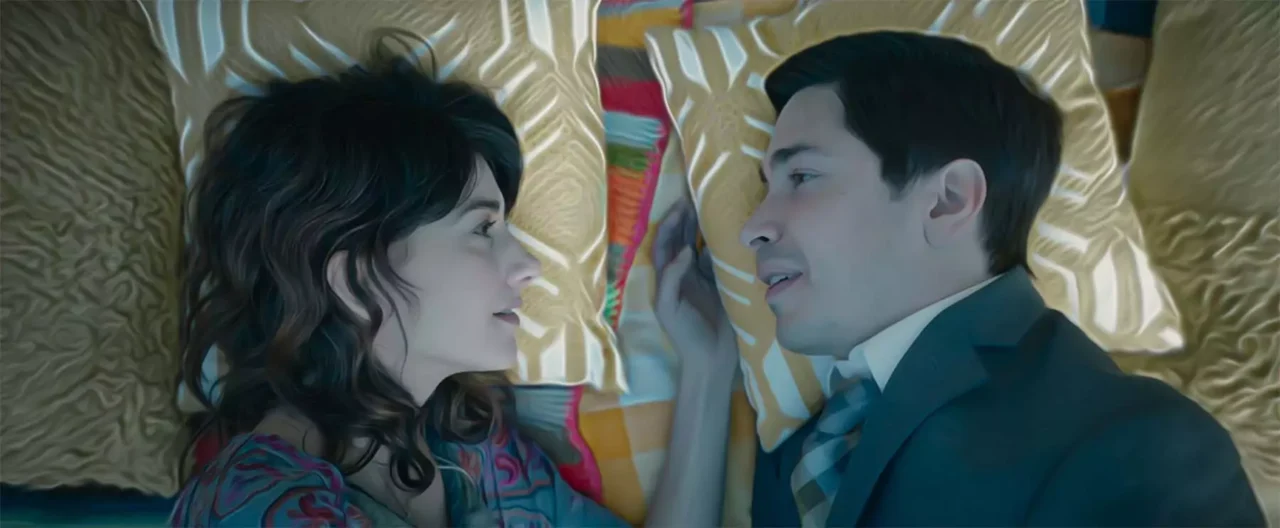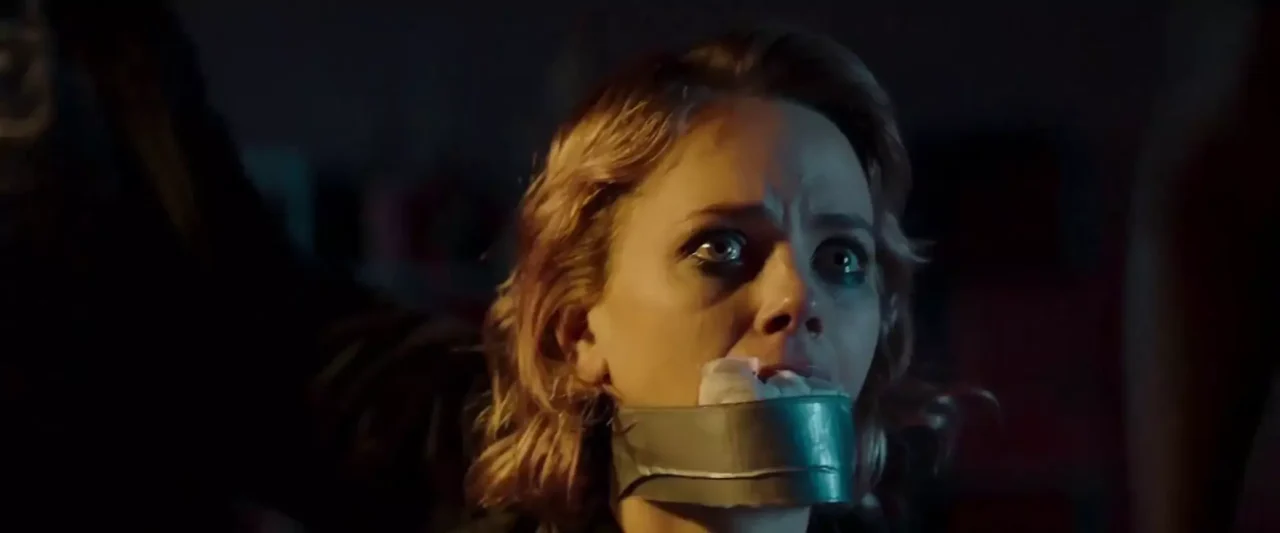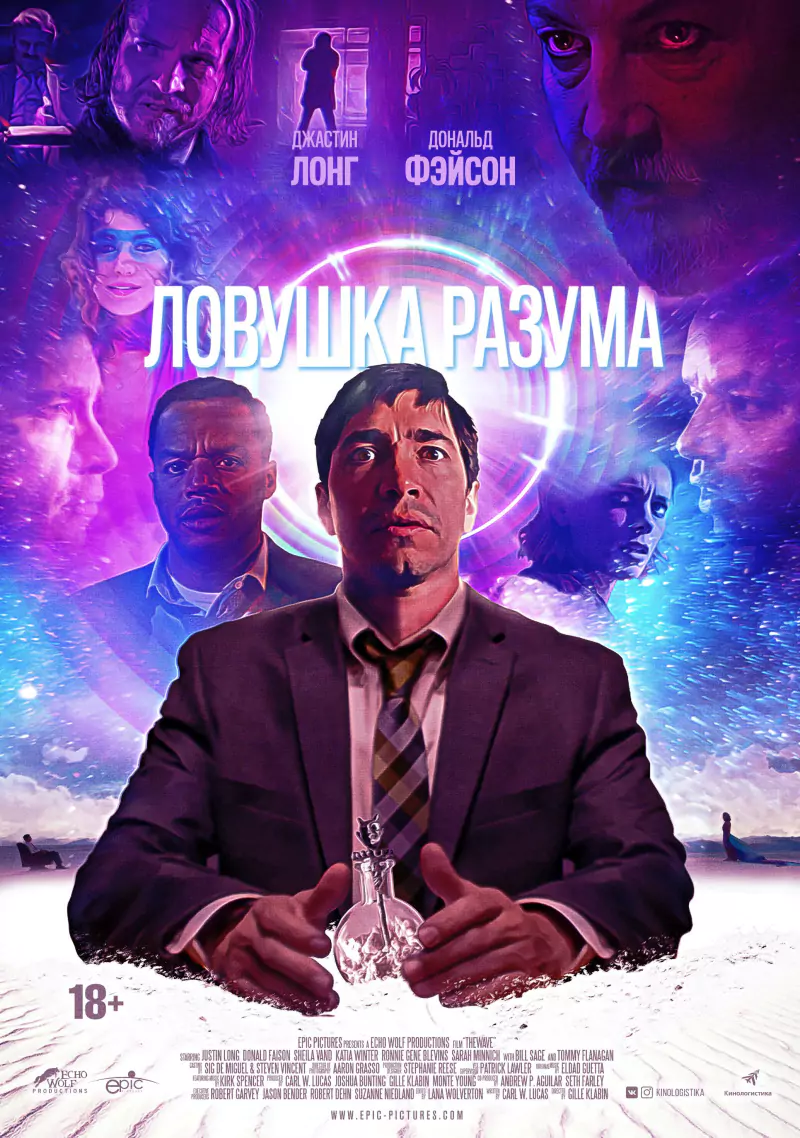The Wave 2019 is a psychedelic journey masquerading as a drug film, but it’s so much more than your typical pharmaceutical odyssey. While it shares DNA with films like Synchronic or Pineapple Express, director Gille Klabin’s feature debut carves out its own hallucinogenic territory with surprising emotional depth. The cast, helmed by Justin Long’s performance alongside Tommy Flanagan and Donald Faison, delivers a narrative that uses altered consciousness as a catalyst for profound self-examination rather than mere escapism.
While this review for The Wave 2019 avoids major ending reveals, some scenes and stylistic choices are discussed
Film Details for The Wave 2019
Director: Gille Klabin
Writer: Carl W. Lucas
Cast: Justin Long, Tommy Flanagan, Donald Faison, Sheila Vand
Distributor: Epic Picture Group
Production: Echo Wolf Productions
Release: VOD January 17, 2020 (Festival run 2019)

Skip to a Specific Section
The Wave 2019 Review
From the opening frames, Klabin establishes “The Wave 2019” as both a literal pharmaceutical effect and a metaphorical life force. The film immediately signals its intentions through expert sound design and a pulsating soundtrack that becomes as much a character as any human presence on screen. This isn’t just ambient noise; it’s carefully orchestrated audio architecture that guides viewers through Frank’s fractured reality with surgical precision.
Psychedelic Cinematography Meets Moral Reckoning
Klabin’s directorial approach transforms what could have been a standard “bad trip” narrative into something far more sophisticated. The cinematography transitions between stark reality and dreamscapes, employing visual techniques that never feel gimmicky or indulgent. When the narrative shifts from concrete situations to hallucinogenic sequences, the camera work maintains clarity of purpose, and each ethereal moment serves the larger story of Frank’s moral awakening.
Justin Long‘s portrayal of Frank represents a complete departure from his typical comedic roles. This insurance lawyer has sold fragments of his soul for professional advancement, and Long captures both the hollow perfection of Frank’s exterior life and the vulnerability underneath. The drugs don’t create Frank’s problems; they merely strip away the carefully constructed facade he’s built around his compromised ethics. Long navigates this transformation with a good sense of nuance, making Frank’s journey feel authentic rather than contrived.

Narrative Structure That Defies Trippy Film Conventions
What distinguishes The Wave 2019 from similar consciousness-altering films is its commitment to narrative coherence despite the medicinal chaos. The story centers around Frank’s desperate search for his lost wallet and a mysterious woman named Theresa (Sheila Vand), but these MacGuffins serve deeper purposes. Each seemingly random encounter forces Frank to confront specific moral failures, creating a structure that feels both organic and purposeful.
The film’s central moral pivot, Frank’s decision to destroy a family’s insurance claim for personal gain, provides genuine stakes beyond the psychedelic spectacle. This isn’t abstract philosophical navel-gazing; it’s a concrete examination of how small compromises accumulate into soul-crushing betrayals. The pharmaceutical journey becomes a reckoning with real-world consequences, elevating the material beyond genre conventions.
Supporting Performances and Visual Poetry
The supporting cast creates a convincing ecosystem around Frank’s dissolution. Donald Faison brings his natural charisma to moments that could have felt forced, while Tommy Flanagan provides a grounding presence when the narrative threatens to float away entirely. However, Sheila Vand’s Theresa occasionally disappears into ethereal sequences that prioritize visual poetry over character development. While these dreamlike interludes create stunning imagery, they sometimes feel disconnected from the film’s otherwise tight emotional trajectory.
The production design deserves particular recognition for creating distinct visual languages for different states of consciousness. Reality feels appropriately sterile and corporate, while the altered sequences bloom with color and organic textures. This isn’t random psychedelic imagery; it’s carefully constructed visual storytelling that reinforces thematic elements without overwhelming the narrative.
Final Verdict: Transcendent Genre Filmmaking
The Wave succeeds because it uses pharma-fueled alteration as a storytelling device rather than an end goal. Klabin and writer Carl W. Lucas understand that the most effective “pill-popping films” aren’t about drugs; they’re about the human truths that altered consciousness can reveal. Frank’s journey through chemical-induced revelation becomes a surprisingly moving examination of moral compromise and the possibility of redemption.
While some sequences lean too heavily into abstract imagery, the film’s emotional core remains solid throughout. This is genre filmmaking with genuine heart, elevated by committed performances and thoughtful direction. The Wave proves that psychedelic cinema can be both visually spectacular and emotionally resonant when crafted with this level of intention. Roger Ebert lives on with a website created by a whole bunch of people using his name. Here’s another review of The Wave 2019.
Justin Long’s Tripped Out Film Trailer | The Wave 2019
The Wave is rated
3.5 Moral revelations disguised as bad trips out of 5


